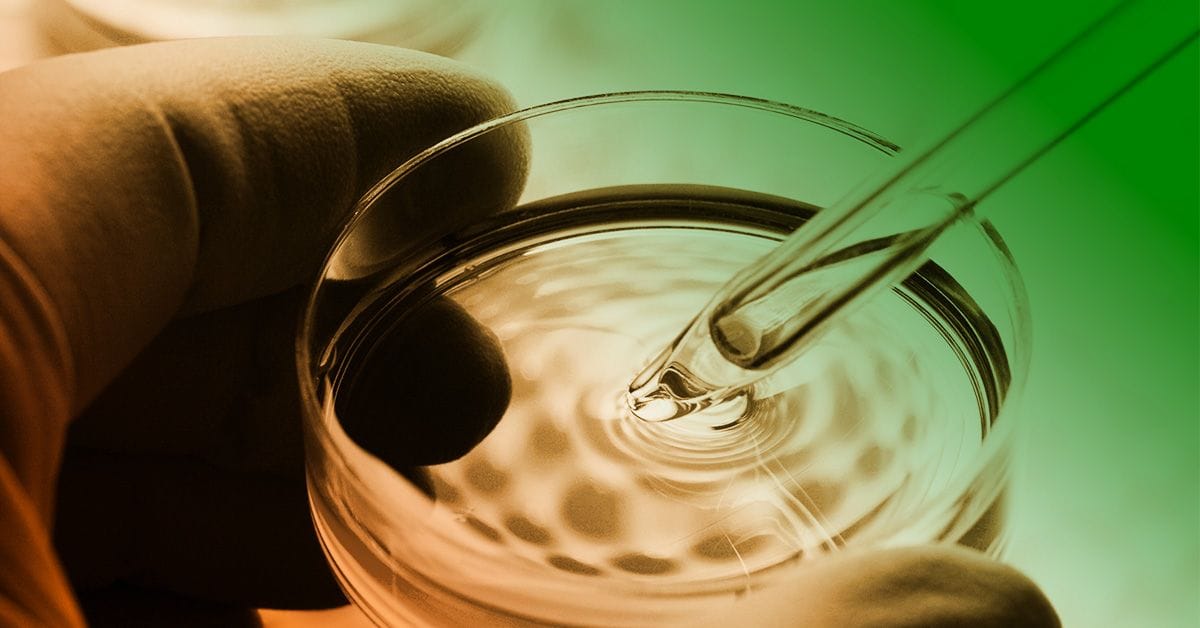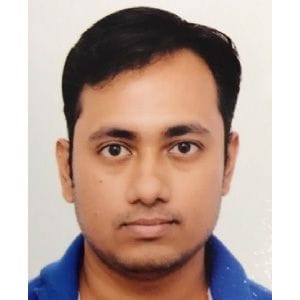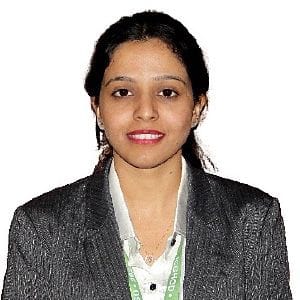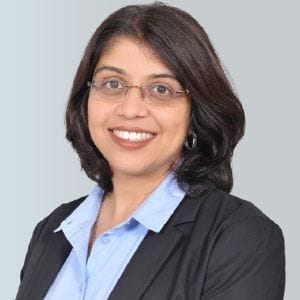This year, we bring you a collection of insightful conversations with thought leaders from India's scientific community, as well as a curated selection of ACS journal articles highlighting research based on the pioneering discoveries of Sir C. V. Raman.

National Science Day is celebrated each year in India on February 28. This date marks the anniversary of the discovery of the Raman Effect by Sir C. V. Raman in 1928. The day is dedicated to promoting scientific awareness, fostering scientific temper, and honoring the contributions of scientists towards society. This serves as a reminder of the nation's rich scientific heritage and ongoing contributions to global research.
This year, the theme of National Science Day is “Indigenous Technologies for Viksit Bharat.” As science and technology continues to play a crucial role in the development of a nation, it reinforces the importance of investing in research and development, encouraging the government and private sectors to allocate resources towards scientific initiatives.
Science in all the ages has been critical in leading the transformation in society, whether it be through the fundamental discovery of an atom or exploration in space. This day also gives us an opportunity to remember some of the historical moments for Indian science in 2023—in particular the Indian Space Research Organization [ISRO] programs Chandrayaan-3, the lunar exploration mission, and Aditya-L1, India’s first mission to the Sun. As India continues to position itself as a global hub for research and innovation, its young population promises hope and stands formidable to undertake bigger challenges in science, technology and innovation.
This year, we are excited to feature a collection of research highlights as well as insightful conversations with three thought leaders from India's scientific community. Their perspectives shed light on the current state of scientific endeavors in India, emphasize the importance of government support and funding for continued progress, and offer invaluable advice for aspiring researchers and students.
Additionally, we invite you to browse a curated selection of leading-edge research articles published in ACS journals featuring various Raman technologies and applications.
Dr. Arnab Dutta

Dr. Arnab Dutta identifies himself as a bio-inspired catalyst designer, and he learned the basics of this field from Prof. Anne K. Jones and Dr. Wendy Shaw. Currently, Arnab is pursuing his independent career as an associate professor at the Indian Institute of Technology Bombay (IITB) and designing bio-mimetic catalysts for green hydrogen production, CO2 abatement, O2 reduction, and water oxidation. The research group led by Arnab is attempting to unravel sustainable solutions for establishing a carbon-neutral energy infrastructure. Arnab is co-convenor of the National Center of Excellence in Carbon Capture and Utilization and a co-founder of the clean energy start-up UrjanovaC Pvt. Ltd.
Sneha Sandeep Lavate

Sneha Sandeep Lavate is a Senior Research fellow working on a Shell Energy Pvt. Ltd. funded project as well as pursuing her Ph.D. under the guidance of Dr. Rohit Srivastava at the Department of Petroleum Engineering, Pandit Deendayal Energy University (PDEU), Gandhinagar, Gujarat. She received her integrated degree in B.Sc.-M.Sc. Nano Science & Technology from the School of Nano Science and Technology, Shivaji University, Kolhapur, Maharashtra. Her thesis work is focused on the design and development of advanced nanohybrids for photo/electro-chemical green hydrogen generation and CO2 reduction into green fuels. She is an active ACS Member and is the current President of ACS International Student Chapter at PDEU.
Dr. Anuya Nisal

Dr. Anuya Nisal is the Founder and CEO of Serigen Mediproducts, an innovation-driven tissue regeneration products company. She received her Ph.D. in Chemical Engineering from Indian Institute of Technology, Mumbai, and her master's in Materials Science and Engineering from the University of Delaware, USA. She has prior experience as a Scientist in the GE Plastics John F. Welch Technology Center. More recently, she was a Principal Scientist at the Polymer Engineering and Science department at CSIR-National Chemical Laboratory (NCL).
Dr. Nisal has more than 10 years of experience working in the field of polymers as biomaterials for tissue engineering and regeneration, and her work has resulted in 27 peer reviewed journal publications and eight patent families. She has been recognized through several awards including the Indian National Academy of Engineering—Young Entrepreneur Award 2020, Leaders in Innovation Fellowship from Royal Academy of Engineering, UK, 2019, VASVIK award 2021, and a TIE-BIRAC-WiNER award for Women in Entrepreneurial Research in 2019.
Research Highlights from ACS Journals
Hydrogen Peroxide Electrosynthesis in a Strong Acidic Environment Using Cationic Surfactants
Zachary Adler, Xiao Zhang, Guangxia Feng, Yaping Shi, Peng Zhu, Yang Xia, Xiaonan Shan*, and Haotian Wang*
DOI: 10.1021/prechem.3c00096
Spatially Uniform and Quantitative Surface-Enhanced Raman Scattering under Modal Ultrastrong Coupling Beyond Nanostructure Homogeneity Limits
Yoshiki Suganami, Tomoya Oshikiri, Hideyuki Mitomo, Keiji Sasaki, Yen-En Liu, Xu Shi, Yasutaka Matsuo, Kuniharu Ijiro, and Hiroaki Misawa*
DOI: 10.1021/acsnano.3c10959
3D Superclusters with Hybrid Bioinks for Early Detection in Breast Cancer
Thanh Mien Nguyen, SinSung Jeong, Seok Kyung Kang, Seung-Wook Han, Thu M. T. Nguyen, Seungju Lee, Youn Joo Jung, You Hwan Kim, Sunwoo Park, Gyeong-Ha Bak, Young-Chai Ko, Eun-Jung Choi*, Hyun Yul Kim*, and Jin-Woo Oh*
DOI: 10.1021/acssensors.3c01938
Microstructural Insights into the Transformation of Cubic, Low-Temperature, Disordered Cu2ZnSnS4 into the Tetragonal Form
S. Bette*, E. Isotta*, B. Mukherjee*, A. Schulz, Z. Dallos, U. Kolb, Robert E. Dinnebier, and P. Scardi
DOI: 10.1021/acs.jpcc.3c07085
Clearing Up Discrepancies in 2D and 3D Nickel Molybdate Hydrate Structures
Robin N. Dürr, Pierfrancesco Maltoni, Shihui Feng, Sagar Ghorai, Petter Ström, Cheuk-Wai Tai, Rafael B. Araujo, and Tomas Edvinsson*
DOI: 10.1021/acs.inorgchem.3c03261
Self-Organized SERS Substrates with Efficient Analyte Enrichment in the Hot Spots
Volodymyr Dzhagan*, Nazar Mazur, Olga Kapush, Mykola Skoryk, Yaroslav Pirko, Alla Yemets, Vladyslav Dzhahan, Petro Shepeliavyi, Mykhailo Valakh, and Volodymyr Yukhymchuk
DOI: 10.1021/acsomega.3c08393
Design of MXene-Based Multiporous Nanosheet Stacking Structures Integrating Multiple Synergistic SERS Enhancements for Ultrasensitive Detection of Chloramphenicol
Yusi Peng, Lili Yang, Yanyan Li, Weida Zhang, Meimei Xu, Chenglong Lin, Jianjun Liu, Zhengren Huang*, and Yong Yang*
DOI: 10.1021/jacsau.3c00758
Pressure and Composition Effects on a Common Nanoparticle Ligand–Solvent Pair
Samuel Salas Sanabria and Lindsey A. Hanson*
DOI: 10.1021/acs.jpcb.3c06234
Join ACS on Campus in India!

Join ACS in Mumbai, Manipal, or Bengaluru from February 26 - March 1 for a series of engaging half-day events. Get to know ACS Editors and learn their Top Tips for Scholarly Publishing and Effective Writing. Plus, find out more about Cultivating Your Scientific Presentation Skills and the latest ACS Resources you can use to grow your career.
All events are FREE and open to all students and researchers studying the sciences—not just chemistry! Attendees will receive a personalized participation certificate after the event.
- February 26: Tata Institute of Fundamental Research
This program is designed exclusively for TIFR. Please register with your TIFR email address. - February 28: Manipal Academy of Higher Education
- March 1: Jawaharlal Nehru Centre for Advanced Scientific Research
This program is designed exclusively for JNCASR students and faculty. Please register with your JNCASR email address.